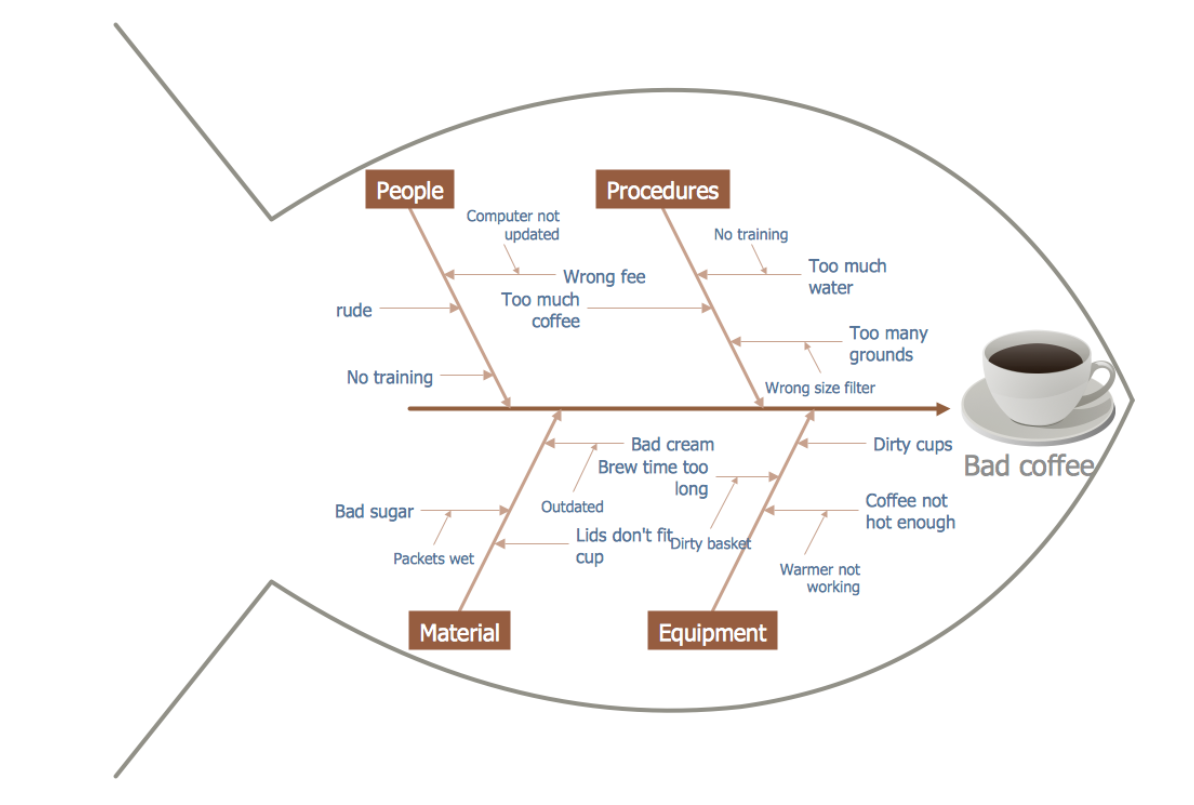6 Tips for Navigating Obstacles on the Road to Your Goals
One thing you can expect to happen when you’re working towards your goals is encountering obstacles along the way. Maybe you’re faced with a sudden financial setback or changes in your life demand that you re-adjust your priorities. Whatever it is, know that obstacles are part of the process. And while you cannot predict what will happen, it is all in your power to adequately prepare for it.
Here are some useful tips to help you get by and cope with the unexpected when chasing after your dreams.
Identify the problem
Don’t mistake the signs and symptoms of a problem for its cause. For instance, declining productivity may be caused by an underlying burnout. Poor product sales may not be caused by poor product quality but by bad customer service.
Identifying the problem means getting to the root of the problem and figuring out why it’s happening in the first place.
There are strategies that you can use to properly diagnose the root cause of your issues.
- Ask open-ended questions
Open-ended questions are questions that cannot be answered by a simple Yes or No. Examples of these questions are exploratory questions such as: “Where is this problem causing the biggest impact?” or clarifying questions like “What data points would help me better understand the scope of this issue?” Open-ended questions encourage you to provide more context, uncover underlying factors, and explore the problem from multiple angles. This helps move beyond just the symptoms to identify the true root cause.
- Use the 5 Whys technique
The 5 Whys Technique requires you to ask Why consecutively until you get to the bottom of the problem. For example, if you are having trouble sleeping at night, you can ask: Why can’t I fall asleep? Why am I worrying so much? Why do I have so many unfinished tasks? Why am I taking on more than I can handle? Who do I have difficulty saying No? The "5 Whys" can be a very effective way to uncover the true source of even personal, individual-level problems. By persistently asking "why" and digging deeper, you can often find the underlying drivers that are creating the issue you’re trying to solve.
- Use the Fishbone diagram
Also called the Ishikawa diagram, this method of visualization helps you identify the potentially contributing factors to the issue and uncover hidden relationships among them. Here’s an example.
Image source: conceptdraw.com
Hit the breaks
Once you recognize that you’re facing a problem, it’s important to take a step back and acknowledge the issue. Hitting the breaks will help you gain a different perspective of the situation that might help you solve the issue later on.
Stepping back can mean taking a break from actively working on the goal in order to clear your mind or shifting your focus to something else for a period of time. This will allow you to come back to the issue with a refreshed mindset.
Aside from gaining additional perspectives, stepping back from the problem allows you to gather new information about the situation that might provide new insights.
And finally, it gives you time to let go of preconceived notions and biases about the problem so that you can adopt a more open, curious, and creative mindset.
Related: The Best Way to Achieve Goals: A 10-Step Formula for Success
Keep a positive mindset
It’s easy to lose your spirit in the face of adversity but that’s exactly when you need it the most. When encountering obstacles while chasing after your biggest dreams, make it a priority not to lose heart. A positive mindset will help you not only move forward and solve the problem but also build a personal habit of resilience.
So how does one maintain positivity in difficult times? Here are some tips from Larry Alton of success.com.
- Find humor in bad situations. It will help dispel the tension and negative emotions so that everyone can re-focus their energies on solving the problem instead of worrying about it.
- Cheer yourself on. Cultivate positive self-talk to boost self-confidence and personal courage.
- Worry about the later — later. Focus on what needs to be done now.
- Turn to supportive mentors and friends. They can help urge you on and give you insightful perspectives for moving forward.
- Extract the lessons from the failures. If you can learn from a difficult experience, then it has its merits.

Get support
Having a mentor, a friend, or any form of social support when you are faced with a challenge is one of the most helpful things you can have in that situation. Nobody likes to be alone especially when you’re feeling down.
Reach out to family, friends, or mentors who can provide encouragement, advice, and a fresh perspective on the challenge at hand. Talking through the problem with someone you trust can help you gain clarity and identify potential solutions that you may have overlooked on your own.
Additionally, consider joining a support group or online community related to your goals — the collective wisdom and shared experiences of others facing similar obstacles can be invaluable.
Solve one piece of the problem at a time
Rather than becoming overwhelmed by the entirety of the obstacle, break it down into smaller, more manageable pieces.
Identify the key components of the problem and tackle them one step at a time. This methodical approach can help you make steady progress, even if the overall solution is not immediately apparent.
By focusing on solving smaller, discrete parts of the challenge, you can build momentum and confidence, which can then be applied to the remaining aspects of the obstacle.
Celebrate small wins
Celebrating small wins is crucial because it boosts your motivation and morale, building confidence and a growth mindset.
The positive feedback loop created by acknowledging incremental progress keeps you energized to tackle obstacles, while also inspiring those around you. Rather than fixating solely on the end goal, making a habit of honoring your small achievements reinforces the value of your efforts along the way.
So rather than just giving yourself a pat on the back, try to get creative with how you mark your small achievements. For working out a particularly difficult problem, treat yourself to dinner with a supportive friend. The key is to find meaningful, enjoyable ways to mark your progress, no matter how incremental.
By consciously celebrating progress, no matter how incremental, you'll train your brain to focus on what's going well rather than getting discouraged by setbacks. Over time, this positive reinforcement can provide the motivation and momentum you need to keep pushing through obstacles and achieve your bigger aspirations.
 Image credit: Jill Wellington on Pexels
Image credit: Jill Wellington on Pexels
Bonus Tip: Learn how to recognize an issue before it arises
Sometimes, problems occur because smaller things have been overlooked. Let’s say as a manager, you failed to notice the signs of burnout in your employees. Before you know it, the problem has escalated and destroyed the morale of your entire team. Or perhaps you’re not being mindful of your little expenses here and there and now you’ve realized you have compromised your ability to control your finances.
Knowing how to recognize the signs of potential trouble early on will help you mitigate the impending disaster. To recognize issues and problems as they arise, you need to:
- Develop situational awareness. Pay close attention to what’s going on around you. Notice little changes, inconsistencies, and irregularities. Being observant is key.
- Listen actively. When others express concerns, complaints or point out anomalies, listen carefully instead of dismissing or minimizing. Other people’s perspectives can help you diagnose an underlying issue.
- Look for patterns. Issues often start with small signs that repeat or patterns that emerge over time.
- Question assumptions. Just because something works doesn’t mean it will keep doing so in the long run. Re-examine your routines. Ask “what-if” questions — with caution.
- Journal. Document your journey and write down your observations and reflections. This will help you identify potentially problematic patterns that may arise later on.
Related: 8 Different Methods of Motivation to Supercharge Your Life
Final Word
Facing obstacles on the path to your goals can be frustrating, but setbacks are a natural part of any journey. Embrace it and learn from it because it’s not about perfection, but rather equipping yourself with the right mindset and tools to navigate hurdles productively. Hope these tips will help you move forward and solve your challenges to achieve great things.
Download TaskSpur on Android | Download TaskSpur on your iPhone
Sign up or Login on your browser
About the Author
Bernard Boodeea is the founder of Life Intelligence Group, a company that uses Agile principles to build products that help people succeed every day. Bernard is a seasoned certified Agile coach, entrepreneur, and technology consultant.
References
- Ackerman, C. E., MA. (2024, February 20). Positive Mindset: How to develop a positive mental attitude. PositivePsychology.com. https://positivepsychology.com/positive-mindset/#tips-positive-mindset
- Five Whys and Five Hows. (n.d.). American Society for Quality (ASQ). Retrieved April 8, 2024, from https://asq.org/quality-resources/five-whys
- Celebrate the small stuff. (n.d.). Positive Psychology | UMN Extension. https://extension.umn.edu/two-you-video-series/celebrate-small-stuff
- What are some strategies to identify problems when they are not obvious? (2023, December 28). www.linkedin.com. https://www.linkedin.com/advice/0/what-some-strategies-identify-problems-when-obvious-84wtc
- Khan, B. (2016, July 28). Stop and step back from the problem! - Mind tools. Mind Tools. https://www.mindtools.com/blog/problem-solving
- Pedersen, T. (2022, June 23). How to deal with your problems. Psych Central. https://psychcentral.com/lib/5-ways-to-solve-all-your-problems#steps-to-take